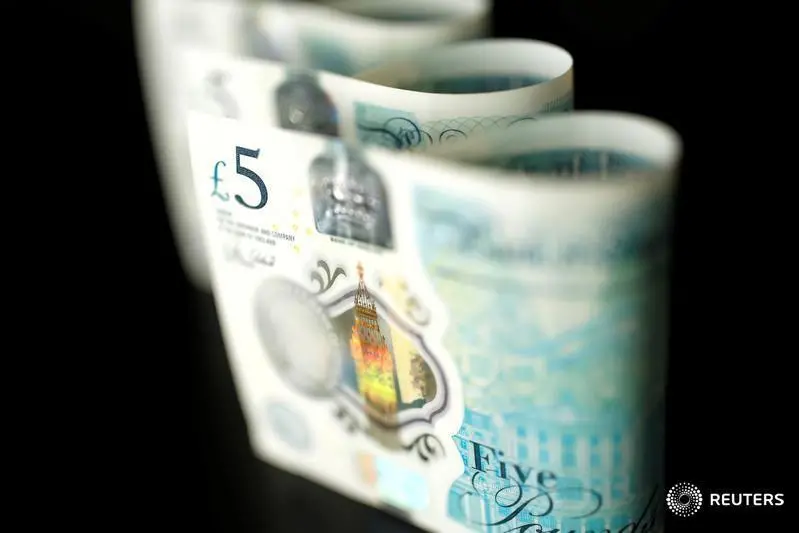PHOTO
Sterling fell against a strengthening dollar and the euro on Wednesday after U.S. inflation data boosted Treasury yields.
U.S. consumer price growth slowed sharply in April though it is likely to stay hot for a while and keep the Federal Reserve's foot on the brakes to cool demand.
Analysts said the pound would be capped by markets scaling back hawkish expectations about the Bank of England's policy stance and by uncertainty around the British economic outlook.
Money markets were pricing in around 110 basis points (bps) of Bank of England rate hikes by year-end, from 120 bps late last week and around 145 bps at the end of April.
Expectations for rising interest rates usually boost the value of a currency.
U.S. 10-year Treasury yields rose 4 bps to 3.03%.
"Sterling is the easier short because the rate hikes are priced in, the slowdown is happening before our eyes, and the political backdrop is a threat to sterling too," SG forex analysts said.
Britain is on course to enter a technical recession in the second half of this year, an economic think-tank said on Wednesday.
At 1251 GMT, the pound was down 0.3% against the U.S. dollar at $1.2282, just above its lowest level since June 2020, which was $1.2262, reached on Monday.
The dollar index, which measures that currency versus six others, was up 0.1% after the data. It slipped earlier in the session, but still not far from the high of 104.49 reached this week for the first time since December 2002.
Sterling was down 0.2% versus the euro at 85.63 pence.
"Politics is never far from sterling and could weigh on it at any time," ING analysts said, mentioning risks of UK-EU trade relations deteriorating again.
Britain on Wednesday rejected European Union proposals to resolve a standoff over post-Brexit trade rules for Northern Ireland, saying it would not shy away from taking direct action in the latest escalation between the two sides.
Britain wants a full overhaul of the agreement, while the EU is looking for changes within the terms of the existing deal.
(Reporting by Stefano Rebaudo; Editing by Andrea Ricci)





















